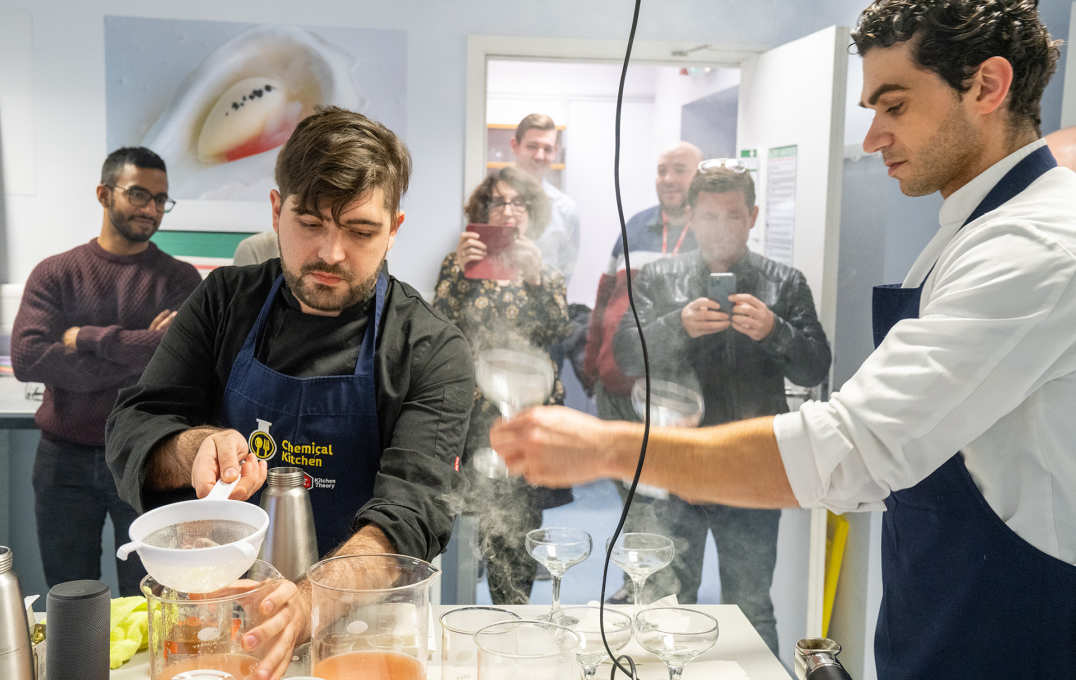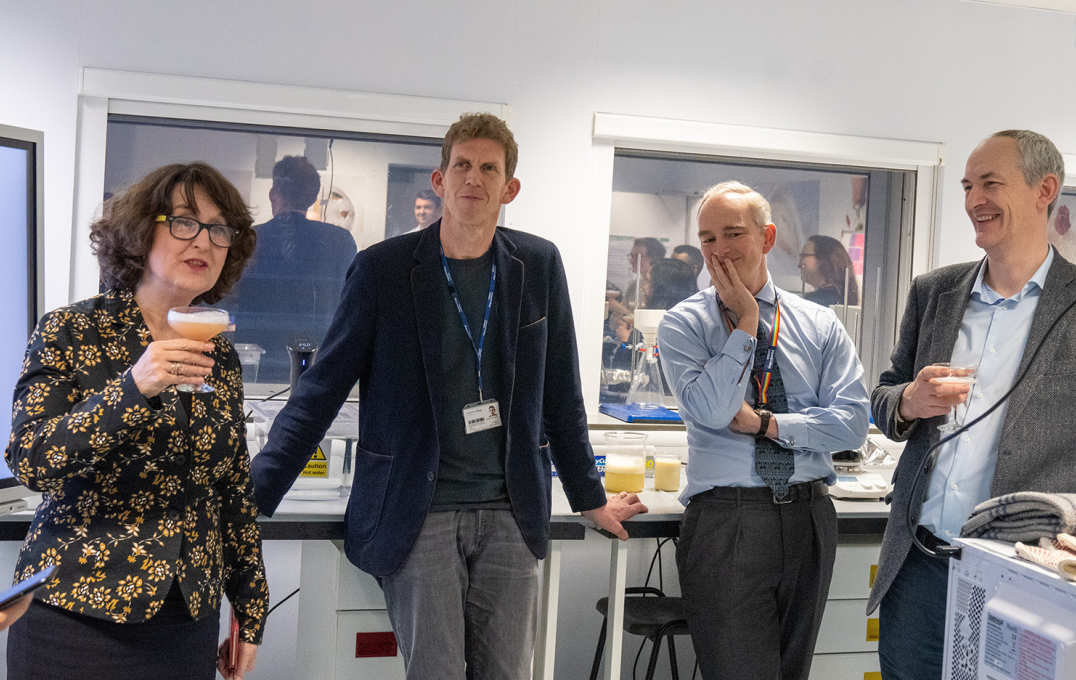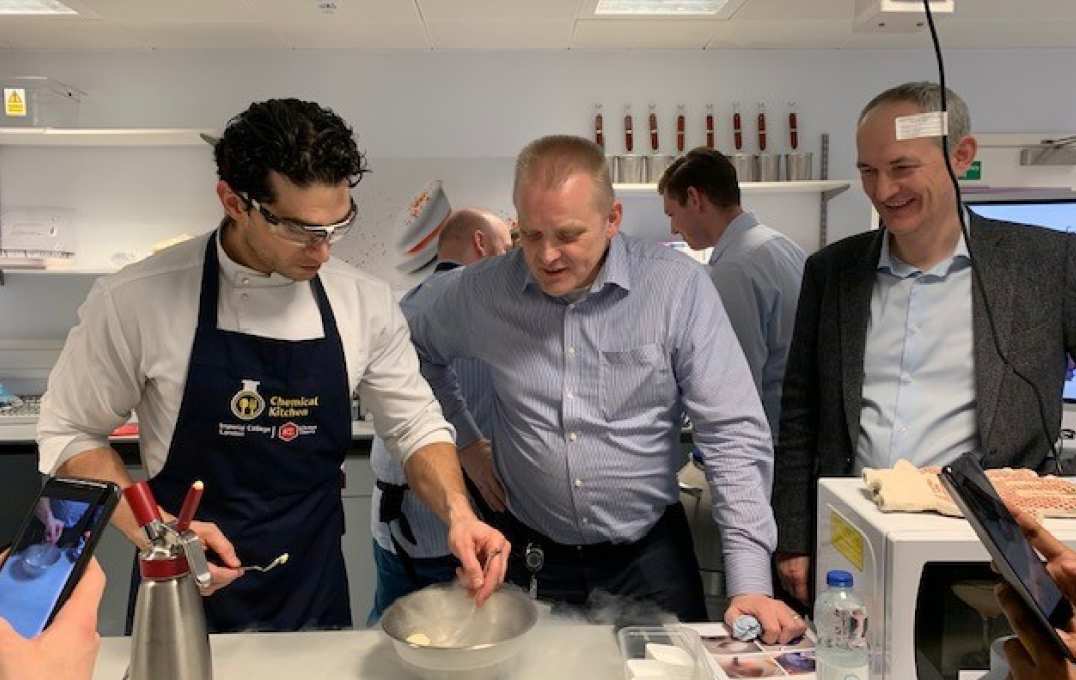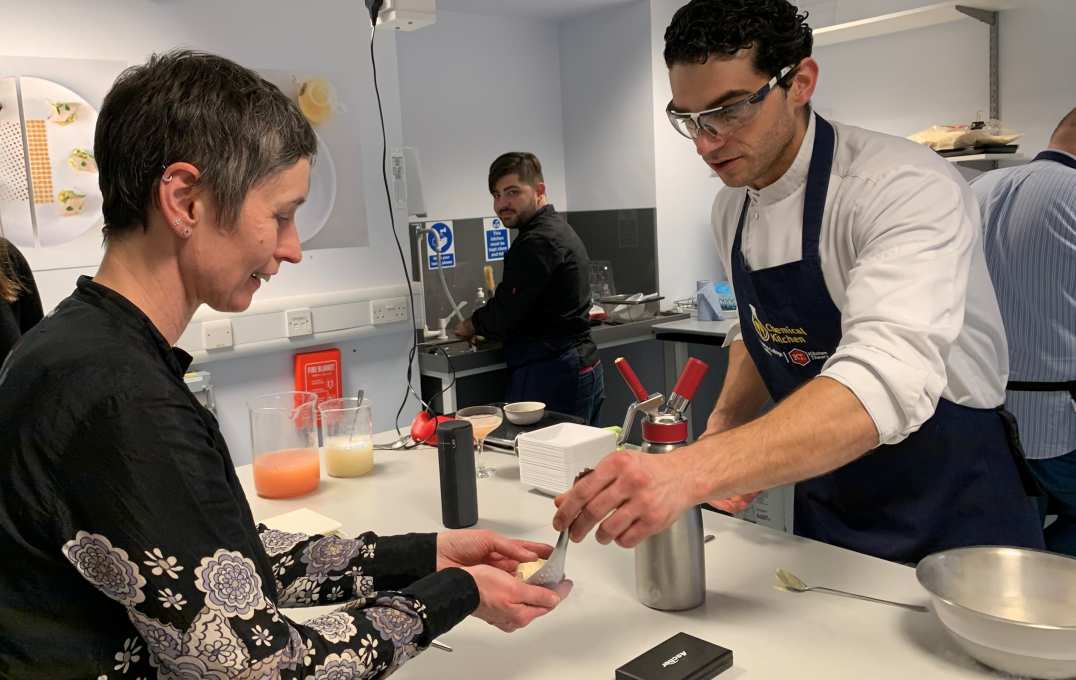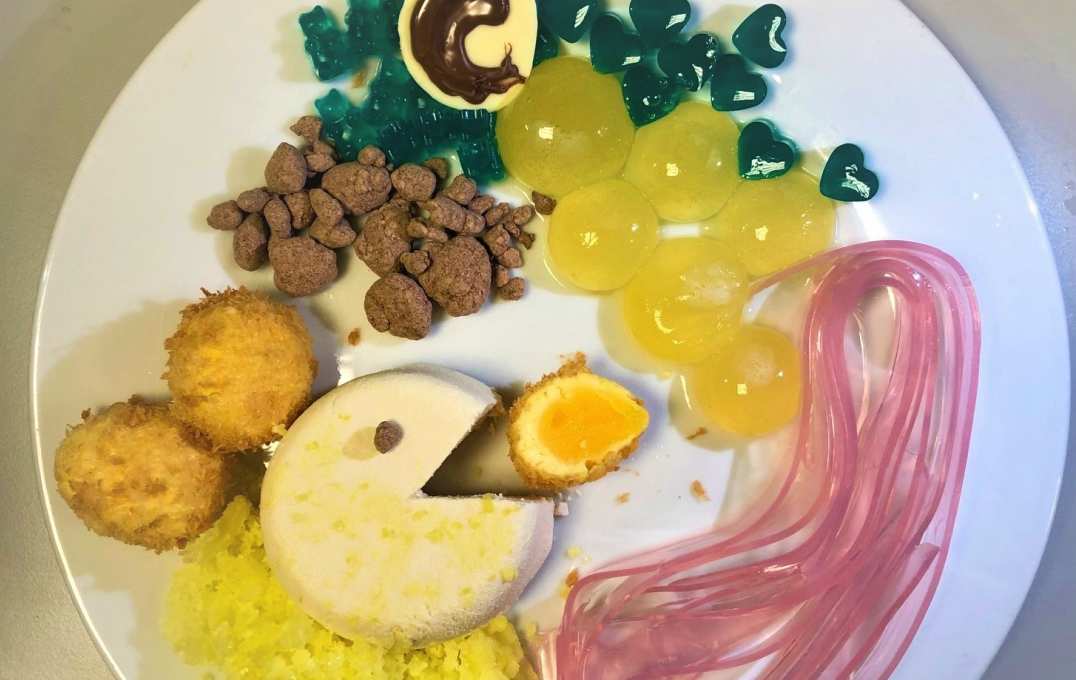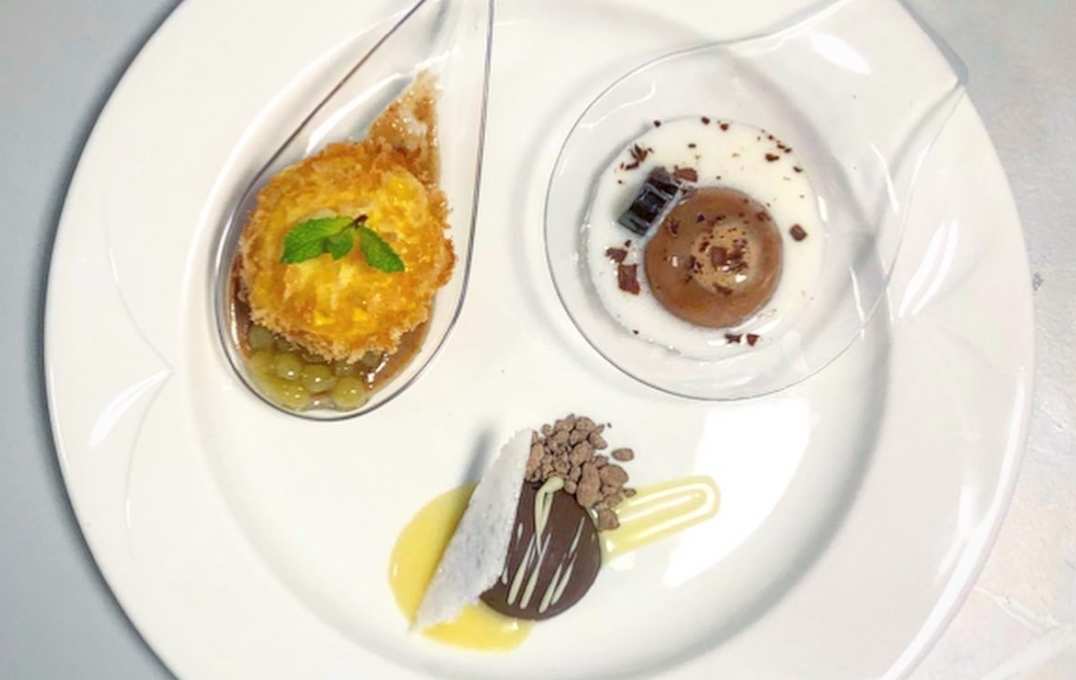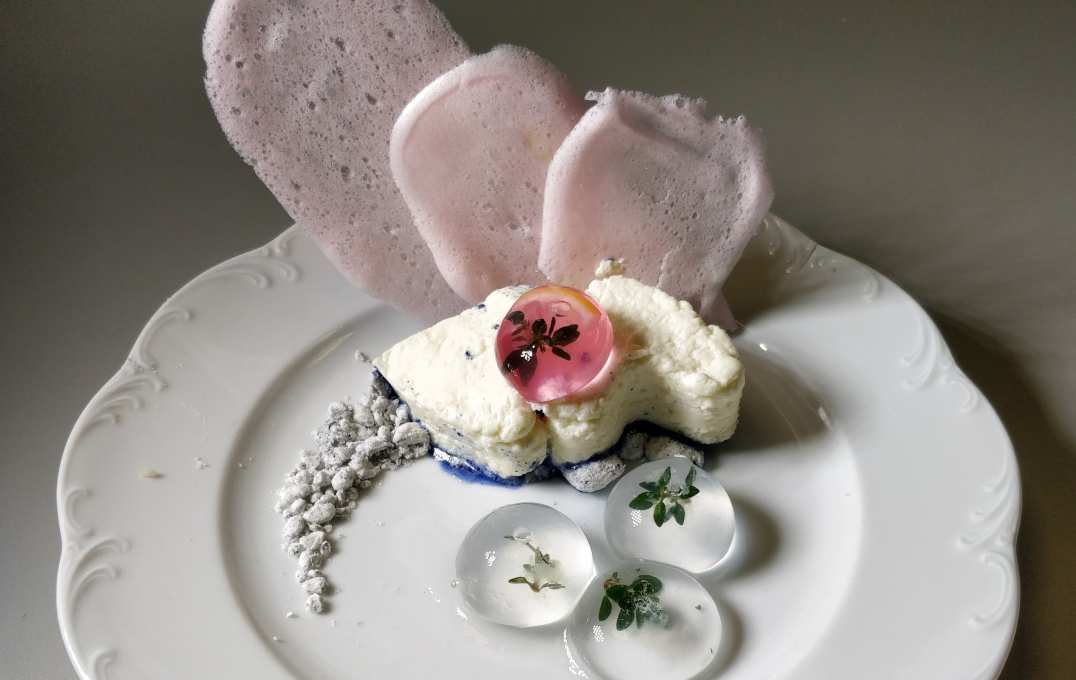‘Chemical Kitchen’ celebrates first run with scientific and gastronomic feast
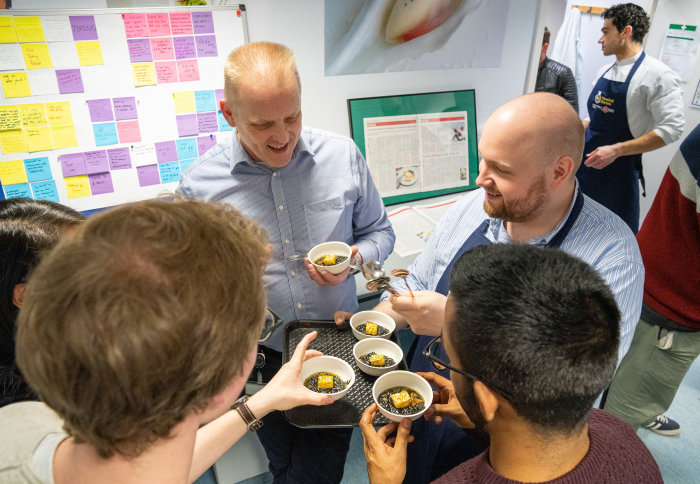
Staff and students from the Department of Chemistry's 'Chemical Kitchen' opened the doors to their culinary lab to showcase what they’ve been up to.
Chemical Kitchen is a collaboration between Imperial College London, headed by Professors Roger Kneebone and Alan Spivey, and chef, Jozef Youssef from Kitchen Theory. The project’s overarching aim is to ease the transition from A-Level to undergraduate-level practical science for first-year students by providing a relaxed and creative introduction to lab research, synthesising two ostensibly diverse environments – the science lab and the professional kitchen.
With this in mind, team members Dr Jakub Radzikowski and Dr Luke Delmas have developed ‘Introduction to Culinary Practice’, an inventive new three-day module; Jakub’s experience in science and professional kitchens, and Luke’s chemistry knowledge, allow insightful exploration of the overlapping skill sets between these two working cultures.
Food scientific
On 16 January 2020 students and staff involved in the project devised a unique tasting-menu experience, inviting senior and education-focused staff members from across College to sample a range of beautifully presented and delicious dishes cooked up in real-time in the lab. During the showcase the team also explained the scientific processes behind the feast.
The event celebrated the success of the module’s first run, which is provided for all first-year students in the Department of Chemistry during their first-term. Professor Spivey, Assistant Provost (Learning & Teaching), said: ‘For me, it’s really important that the Chemical Kitchen was well received by this first cohort – their impressions will be influential for subsequent years. There was a real prospect that the opinion that this lab is a gimmick could have been propagated. It’s initial success means that we can now concentrate on retaining the fun and creativity of the first run whilst strengthening the value of the key concepts and skills students develop in this unique learning environment, which they can subsequently apply directly in their chemistry labs.’
Innovative student-led learning
Aside from being unique in content, another significant aspect of the module is that its development was student-led – part of a wider ‘StudentShapers’ College initiative, which weaves students into the design of their own learning. Current Chemistry students Marvin Alberts, Solomon Asghar and Charlotte Lee, were involved in the development of Chemical Kitchen, and emphasise that this approach ensures things like ‘sufficient background information is given about why things are happening’ – knowledge that might automatically be assumed by a more experienced scientist when creating course material.
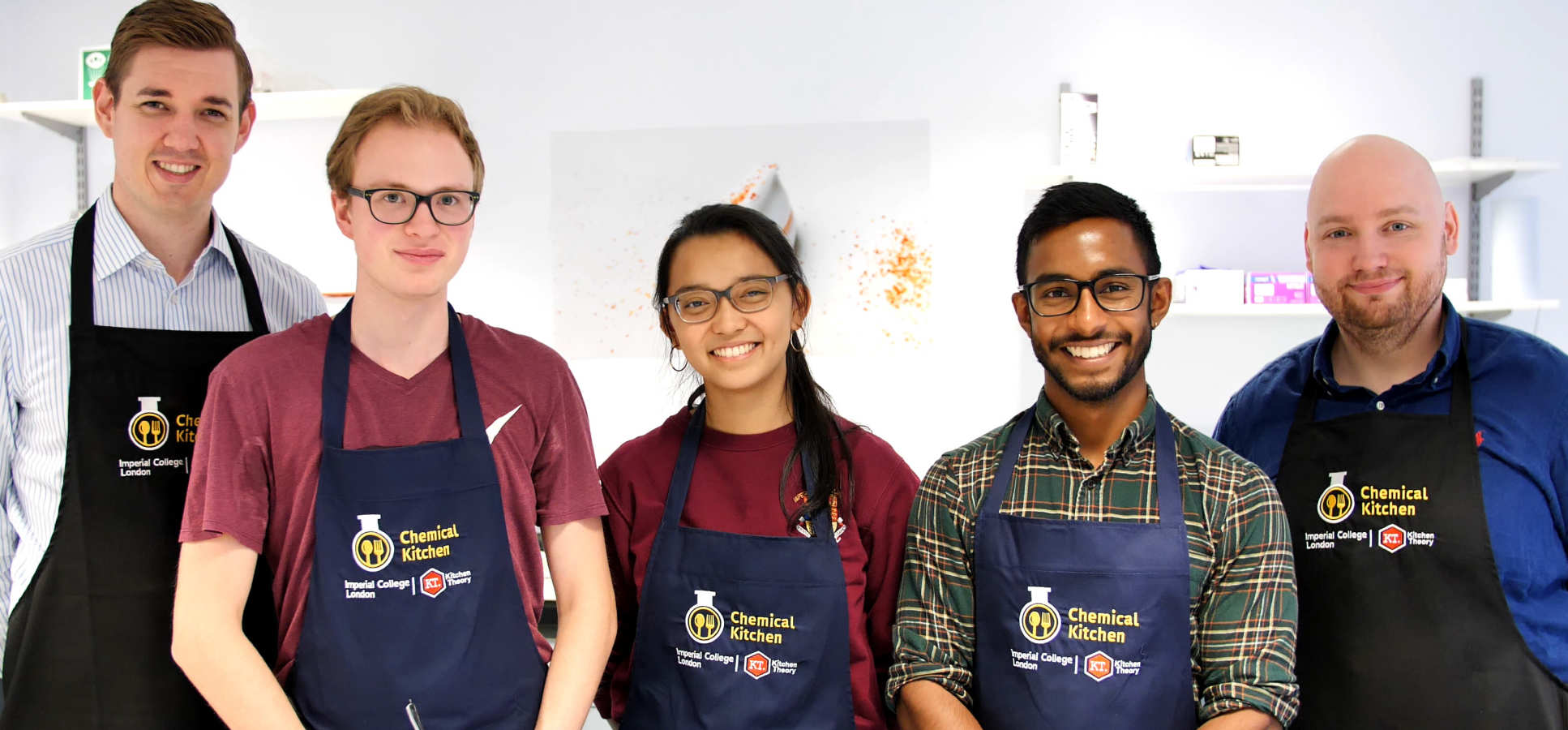
Solomon highlights how the module supports new students: ‘Beyond just being more fun and engaging, it’s definitely a good way to introduce people to the lab skills they need … a lot of my friends hadn’t done any lab work at all [when they first started at Imperial], so it’s a good way to get everybody up to the same level whilst also getting them more comfortable with the idea of university practicals.’
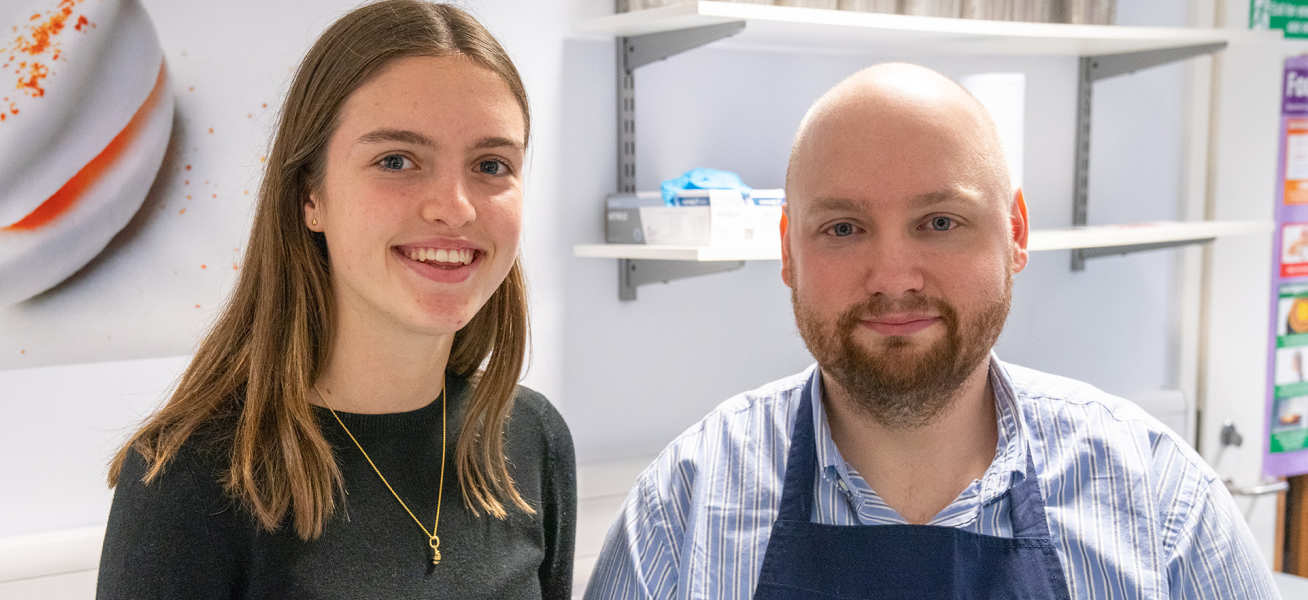
Charlotte Ellis-Keeler, a student on the first run of the module, explains why this supportive and collaborative type of learning is invaluable: ‘We tend to work quite independently at school … first years come in and they’re terrified, no one wants to fail – so to think in the Chemical Kitchen that it’s just some food, if it goes wrong, it doesn’t matter. You come in and can work as a team and bounce ideas off each other, and that’s a new skill that you don’t necessarily have at school.’
She continues: ‘It’s a really fun course – on the whole you get to make some really good food and then eat it afterwards, but it also makes labs less intimidating – even if you don’t realise it initially, now I’m looking back on it I think Chemical Kitchen has really helped the outcome of my [subsequent] lab work. The team-based exercises – and also using equipment that we’d never used before – have really helped.’
Getting creative
The inventive nature of the module has also been influential – second year student Marvin explains that beyond the reproducibility of the scientific elements of each activity, the potential for a range of unique outcomes keeps activities engaging, because with each dish ‘there’s a lot of variety – you can change the flavour, you can change the colour'.
Charlotte enjoyed the creative freedom: ‘In first year everything’s focused on going through the stages, so you’re making things that everyone’s done before, whereas with this, you can create your own dish, which will be completely different to what someone else has made. You can think, I’ve done this … you’re free to do pretty much whatever you want. That creativity was really good.’
Solomon comments on the benefits of a flexible approach to science: ‘It’s opened my eyes to how interdisciplinary a lot of things are, and the mass of transferable skills that exist … a lot of the PhDs I’m applying for are joint between materials, chemistry and physics departments, so it’s good to have the skill of bridging these gaps’.
Marvin agrees: ‘If a group of people working together all come from different backgrounds and have different experience then … they can each contribute their knowledge, and advance the project in a direction that would be unforeseen by a group from the same discipline.’
Professor Spivey emphasises a broader scope for the project in future: ‘We see the non-threatening environment of the Chemical Kitchen as being a great vehicle for students from all disciplines in College to learn key practical scientific and team-working skills. We have plans to extend to a second-year chemistry ‘Pre-research project’, and to develop a ‘toolkit’ of skills, which can be used to train students from other departments across Imperial. We also have plans for a culinary hackathon and outreach activities at the Great Exhibition Road Festival and Imperial Lates.’
Satisfied guests
I was delighted to see that students had helped shape what other students would be learning … the enthusiasm for the project was brilliant to see. Professor Richard Craster Dean of the Faculty of Natural Sciences
Another great aspect of the module is that what you develop in the Chemical Kitchen is edible – ‘this was good because you could actually enjoy the stuff that you’d made afterwards!’, says Charlotte.
Professor Richard Craster, the new Dean of the Faculty of Natural Sciences, was among guests at the event, and thinks that Chemical Kitchen is ‘a really exemplary piece of innovation in learning and teaching’. He continues: ‘This is the sort of teaching Imperial should be doing. I like the idea that it could be versatile and rolled out to other departments, and I was delighted to see that students had helped shape what other students would be learning … the enthusiasm for the project was brilliant to see.’
Professor Craster was also impressed with the menu: ‘The black squid ink risotto dish was great – the team had cooked the rice just perfectly – and I really liked the ice cream at the end – whipped passion fruit-flavoured cream in liquid nitrogen, I thought that was a lot of fun – I could have eaten a lot of that!’
Find out more
Article text (excluding photos or graphics) © Imperial College London.
Photos and graphics subject to third party copyright used with permission or © Imperial College London.
Reporter
Claudia Cannon
The Grantham Institute for Climate Change
